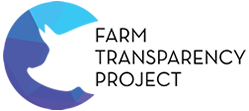News & Media: Lucent shines light on life of pigs from conception to slaughter
Lucent shines light on life of pigs from conception to slaughter
These days when it comes to how our food is produced, the question is no longer "how much do you know about where it comes from?" but, "how much do you want to know?"
This question is a key point of contention in the volatile debate over pig farming in Australia catalysed by Lucent, a new documentary produced by the Aussie Farms Initiative.
Lucent is a compilation of footage filmed covertly on more than 50 pig farms and slaughterhouses across the country, showing the life of a pig from conception to slaughter.
What is different about this film is that it is not trying to draw attention to the worst of the worst by only using examples of so-called "isolated" incidents of cruelty or mistreatment.
Rather, Lucent documents the slow, painful everyday reality of life on an intensive pig farm by showing us, the consumer, what standard, legal practice looks like.
Truth is, it is hard to watch.
The film shows pregnant pigs crammed into tiny metal and concrete cages called sow stalls, so small the pigs are unable to turn around.
It shows the suffering of mother pigs confined to farrowing crates unable to tend to their newborn young. It shows viewers the sad reality of factory farmed animals in Australia, who will never go outdoors, feel grass under their feet or raise their own young.
Unsurprisingly, the pig industry labels the film as being misrepresentative. Yes the animals are confined, but according to them, the pigs actually prefer it that way.
However, this rhetoric ignores what science tells us about pig intelligence.
We know that pigs are clever, social animals. They sit within an exclusive category of species who have demonstrated the ability to interpret images in mirrors, a marker of self-awareness and intelligence shared only with primates, dolphins, elephants and magpies.
They are also highly social beings who naturally live in family groups. Like us, they have social needs that simply cannot be met within the confines of a cage.
Images, like those we see in Lucent, are so effective in communicating the degree of daily suffering experienced by animals raised for food in this country that industry has begun to take a different approach to combat them.
Rather than acknowledging the cruelty evident in the pictures, they are now just looking to stop the flow of images.
Over the past year, industry advocates and farming groups have begun lobbying for "ag-gag" laws, a type of legislation that has been introduced in a number of US jurisdictions.
Broadly, these laws make it illegal to publish or broadcast any footage captured undercover on farms.
This strategy shows that producers would rather consumers simply not look at how they are treating the animals in their care.
As one pig producer told ABC Radio National's Background Briefing: "Everything in the supermarket was a living thing before it has been put in plastic and in a chiller. Something has had to die for that, so I think people need to get over that."
When it comes to exposing legalised cruelty within our farming practices, a picture is indeed worth a thousand words.
It is for this reason that the industry has come out so hard against Lucent, Aussie Farms and anyone trying to shine a light on to intensive pig farms in Australia.
Once you see these images, the animals' suffering is impossible to ignore.
Elise Burgess is the head of communications and Eleanor Nurse is the communications officer at animal protection institute Voiceless.


